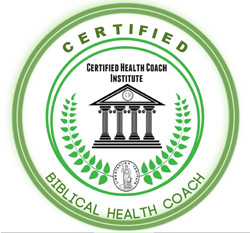The Power of Forgiveness
Posted by Michele Bester on Jul 17, 2023 in Health Blog | Comments Off on The Power of Forgiveness
This is part 3 in a series on the Lord’s Prayer. You can read part one here and part two here.
I am continuing on with the Lord’s Prayer. I’m picking up where I left off last time:
Forgive us our debts as we forgive our debtors. (Mt 6:12)
This is another power packed verse, so grab yourself a cup of coffee or tea and get comfortable as we unpack the truths hidden in this one directive that Jesus gave us.
Forgiveness is very important to our overall health. Forgiveness, and the reciprocal – unforgiveness – are not just spiritual principles, but also physical principles, with significant ramifications to the positive or the negative.
Let’s start out with the spiritual aspect first. In the above verse, the word for debt here means “something owed.” We can gain more insight by looking at the Lord’s Prayer in Luke 11:4 (MKJV): “and forgive us our sins, for we ourselves also forgive everyone who is indebted to us.” So here we see the word sins used instead of debts.
When we pray to God and petition Him to “forgive us our debts” we are petitioning Him to forgive us our sins. Why? Because we have a debt of sin before God. This sin debt is something that none of us can repay. Adam Clarke in his commentary about this says, “Man has nothing to pay: if his debts are not forgiven, they must stand charged against him forever, as he is absolutely insolvent. Forgiveness, therefore, must come from the free mercy of God in Christ.”
Our sin debt is paid in full by one person and one person only: the Lord Jesus Christ. He paid our debt at Calvary. Not only can we not pay our debt of sin to God, but we can’t ever repay our debt to Jesus for what He did for us. By praying and asking for forgiveness, we are acknowledging our sins and our need of Jesus as our Savior.
So the first part of this verse – forgive us our debts – has to do with our relationship with God.
Without being forgiven, we cannot be saved from our sin. And without forgiveness, there is no eternal life. Matthew Henry’s commentary says about this verse, “Our hearts’ desire and prayer to our heavenly Father every day should be, that he would forgive us our debts; that the obligation to punishment may be cancelled and vacated, that we may not come into condemnation; that we may be discharged, and have the comfort of it.”
The second part of this verse – as we forgive our debtors – has to do with our relationship with not only others, but also ourselves and God.
This verse is saying that just as God forgives us for any and all of our wrongdoings, we must do the same. In fact, it is an obligation that comes with serious consequences if we don’t.
Matthew 6:14-15 (MKJV) says, “For if you forgive men their trespasses, your heavenly Father will also forgive you; but if you do not forgive men their trespasses, neither will your Father forgive your trespasses.” See the cause and effect? For if….but. The forgiveness of our sins is not solely dependent upon asking God for forgiveness. It also requires us to be a reflection and extension of that same forgiveness that He grants us, out of His grace and mercy and no obligation of repayment, to others.
The word for trespass means “a side slip (lapse or deviation), that is, unintentional error or willful transgression.” We are to forgive whether the fault or offense is done accidentally or on purpose. And not only that, but we are not to hold a grudge or remember the offense. Matthew Henry in his commentary says a person “must not only not bear a grudge against his brother, or meditate revenge, but be as good a friend as ever, and forget the injury.” We are to do like God and cast it into the depths of the sea (see Micah 7:19.) Quite frankly, if we continue to hold a grudge, then we really haven’t forgiven!
There is a parable in Matthew 18 called The Parable of the Unforgiving Servant that so wonderfully illustrates the mercy of God in forgiving and the judgement of not forgiving.
The parable starts out by Peter asking Jesus in verse 21 (MKJV), “Lord, how often shall my brother sin against me and I forgive him? Until seven times?” The number 7 in the bible symbolizes completeness. Peter is essentially saying….Jesus, is forgiving 7 times complete? Is it sufficient? Look at Jesus’ response: “Jesus said to him, I do not say to you, until seven times; but, until seventy times seven.” The point Jesus is making is that there is no limit to forgiving.
And then Jesus comes with the parable that is a type and shadow of King Jesus, His Kingdom, and us. It’s so powerful I’m going to put the whole text in here.
“Therefore the kingdom of Heaven has been compared to a certain king who desired to make an accounting with his servants. And when he had begun to count, one was brought to him who owed him ten thousand talents. But as he had nothing to pay, his lord commanded that he, and his wife and children, and all that he had, be sold, and payment be made. Then the servant fell down and worshiped him, saying, Lord, have patience with me and I will pay you all. Then the lord of that servant was moved with compassion and released him and forgave him the debt. But the same servant went out and found one of his fellow servants who owed him a hundred denarii. And he laid hands on him and took him by the throat, saying, Pay me what you owe. And his fellow servant fell down at his feet and begged him, saying, Have patience with me and I will pay you all. And he would not, but went and cast him into prison until he should pay the debt. So when his fellow servants saw what was done, they were very sorry. And they came and told their lord all that was done. Then his lord, after he had called him, said to him, O wicked servant, I forgave you all that debt because you begged me. Should you not also have pitied your fellow servant, even as I had pity on you? And his lord was angry, and delivered him to the tormentors until he should pay all that was due to him.”
This parable ends in verse 35 with Jesus telling us: “So likewise shall My heavenly Father do also to you, unless each one of you from your hearts forgive his brother their trespasses.” When I am tempted to hold a grudge and not forgive, I remind myself of this parable and everything that God has forgiven me for, and I find the strength to forgive.
What is forgiveness?
Forgiveness is a hard subject for people. I often get asked: how do I forgive and what is forgiveness?
First and foremost, it’s important to realize that forgiveness is an act of our will. It is a deliberate and intentional choice to let go of the hostility you feel toward another person, along with any resentment and anger and payback.
Forgiveness is not something that is dependent upon the other person saying, “I’m sorry.”
Forgiveness is not about right or wrong, and it is not just about saying the words, “I forgive you.” In an article on forgiveness, Karen Swartz MD says, “It is an active process in which you make a conscious decision to let go of negative feelings whether the person deserves it or not.”
In an article on forgiveness, Amanda Rowett says, “Forgiveness is not easy, nor is it logical or fair. Many people wonder: “Why should I forgive? They were wrong and now I am hurt. Now I am supposed to just forgive them, without having them pay for the offense they caused?! I am the victim here. It’s not fair that they get freedom and I get stuck with pain.” Indeed, forgiveness does not make any sense unless viewed through Jesus’ sacrifice on the cross.”
I want to tell you, friend, that no matter what injustice has been done, no matter by whom, or no matter the crime, Jesus knows and Jesus understands. He went through it Himself, and in the midst of the injustices and crimes and torture committed against Him, He set the example for forgiveness on the cross. After He was ridiculed and mocked, after He had been whipped, beaten, flogged, His flesh ripped out, thorns pounded into His skull, forced into painfully dragging the heavy weapon of His death and then being nailed to the same, after all that He hung on that cross, looking down at the creatures He had created out of and in and by and through love, the ones who had rejected him and tortured him beyond human comprehension, and said….Father, forgive them.
Jesus could have been angry and resentful. He could have seen Himself as the victim. He could have held a grudge against mankind. He could have wanted or even exacted revenge and restitution. He could have wanted to or actually “made them pay” for the emotional, physical, mental, and spiritual abuse. He could have done that at any point in time. He could have come down off that cross and destroyed them all in his fury. But He didn’t. He chose in that moment to forgive.
Jesus said, “Forgive them for they know not what they do.” Notice that Jesus’ forgiveness was NOT based on the perpetrators understanding or acknowledging or confessing or making amends for what they had done. In fact, forgiveness was given in spite of them knowing.
The power of unforgiveness
Unforgiveness has numerous physical, mental, and emotional ramifications. It holds us captive. It keeps us “stuck” and in bondage to the past. It’s like a splinter that works its way in deep and becomes an abscess. It becomes like a cancer, destroying us from within. Unforgiveness is like this dark, rogue cell that begins to multiply and to negatively affect every organ system in our bodies.
Unforgiveness creates a huge stress on the body. Emotions such as anger, anxiety or depression, bitterness, and resentment can be triggered. The next thing you know, you’ve got an upset stomach, your digestion is off and you have a headache. And once your gut goes, everything seems to go.
It saps your energy and your happiness. You can become so pre-occupied with it that it affects your daily living and quality of life. It taints your decision-making processes and fosters lack of trust. Your relationship with others can suffer.
It’s like yeast in bread dough – a small amount permeates an entire loaf. Before you know it, you’ve become a negative person, complaining to everyone who will listen about your injustices. Your thoughts become toxic and your words and attitudes become poison.
All this negativity and hurt affects your immune system. The bad thing about that? 70-80% of your immune system is in your gut, and when your immune system is compromised, you are more subject to chronic disease and inflammation. Additionally, serotonin and dopamine, two of your neurotransmitters responsible for feeling happy, are also produced in the gut. When the gut is compromised, this production is affected and therefore affects our mental and emotional health.
According to Johns Hopkins Hospital, “chronic anger puts you into a fight-or-flight mode, which results in numerous changes in heart rate, blood pressure and immune response. Those changes, then, increase the risk of depression, heart disease and diabetes, among other conditions.”
You basically begin to destroy yourself from within. If unforgiveness is harbored long enough, it becomes something that we hold on to and sometimes just can’t seem to let go of. We become prisoners of our own making while the perpetrator walks free.
Unforgiveness is also a spirit. When we choose not to forgive, we open the door for a spirit of unforgiveness to move in and take up residence. And let me tell you – evil spirits do not like giving up their homes! They are inside, having a field day, being fed by and feeding off of your negativity. To make it worse, they defecate their toxic waste products right back into you, further increasing sickness, disease, and death.
What are the spiritual consequences of unforgiveness?
Unforgiveness is a sin and affects our relationship with God. Harbored unforgiveness becomes a barrier between us and God. When we walk in unforgiveness, anger, hate, resentment, bitterness, and judgementalism, among other things, it creates a hindrance to the flow of God’s love, mercy, and healing. It causes us to become untrusting, which impacts not only our relationship with God but with others.
Jesus instructed us to forgive; therefore, if we don’t, we are in sin. Is 59:2 (Ampl) says, “But your iniquities have made a separation between you and your God, and your sins have hidden His face from you, so that He will not hear.” The CEV version says, “Your sins are the roadblock between you and your God.” Our sins raise up a wall and build a barrier between us and God, and this includes unforgiveness.
Unforgiveness not only hurts us, but we become an instrument in the hand of satan. The thief comes to steal, kill, and destroy. Jesus came to bring life. Unforgiveness brings hate and anger – evil things, dark things. Unforgiveness is siding with the enemy, because the enemy simply wants to destroy. When we forgive, we demonstrate the nature and character of God. We display His virtues. We bring HIS Kingdom! Remember: Thy Kingdom come, Thy will be done, on earth as in heaven. There is no unforgiveness in heaven! Our unforgiveness could stand in the way of the person becoming saved, and if that happens, we are instruments of darkness and not of light.
Wow! How evil is unforgiveness! I’ve never even really thought of all of these things myself, until I sat down to write this article. Thank You, Holy Spirit, for revealing to us the evil, diabolical plot of the enemy. I’ve used this scripture before, but the bible says, “My people perish for lack of knowledge.” God’s knowledge, God’s wisdom, God’s revelation brings light, exposing the darkness and the plans of the enemy. Why? Because God wants us walking in freedom and liberty and health, not in bondage and slavery and sickness and disease!
The greater power of forgiveness
Forgiveness is a deliberate act and choice. It’s not easy – I’m not saying it is! But it still is a choice and it has the power to set you free and to bring healing.
Again from Johns Hopkins, “Whether it’s a simple spat with your spouse or long-held resentment toward a family member or friend, unresolved conflict can go deeper than you may realize—it may be affecting your physical health. The good news: Studies have found that the act of forgiveness can reap huge rewards for your health, lowering the risk of heart attack; improving cholesterol levels and sleep; and reducing pain, blood pressure, and levels of anxiety, depression and stress. And research points to an increase in the forgiveness-health connection as you age.”
Simply forgiving could turn your life and health around!
In Luke 4:18, Jesus says that He came to set the captives free, to liberate us from all kinds of oppression. This includes YOU!
If you have been touched or convicted by what you’ve read today, I encourage you to take it to the Lord right now. He doesn’t want us living in bondage and captivity, and this includes anyone who is held captive by unforgiveness.
Take your hurts and wounds to God and lay them at His feet. Tell Him what happened. Share with Him your pain. He understands your pain! And then ask Him to help you forgive. Holy Spirit is our Helper, and if you come with a sincere heart, He is waiting for you even now to come.
It might even be yourself that you need to forgive! I’ve been so disappointed in myself so many times; so angry for my mistakes. I frequently find it easier to forgive others over myself. But I know I have to, because God’s directive of forgiving is not limited just to others. And what a hypocrite I would be to ask God for and receive His forgiveness and then not forgive myself!
It might even be God you need to forgive! How many times do we point a finger at God, blaming Him for our circumstances, our mishaps, our choices and decisions that turn out badly? When we are angry at God, when we hold a grudge against God, when we are disappointed because of unanswered prayers or prayers not being answered in the way that we want, this raises up a wall of separation between Him and us and creates an opening for the enemy to come in.
We become the voice of satan, who is known as the “accuser of the brethren,” when we accuse God. Remember that satan’s modus operandi is to steal, kill, and destroy and that is what happens with undealt-with unforgiveness towards God: it steals our faith, our Godly protection, and ultimately can cost us our eternal life. Ephesians 4:26-27 tells us “In your anger do not sin. Do not let the sun go down while you are still angry, and do not give the devil a foothold” for a reason.
After forgiving, release that person to God for God to deal with. I know this is hard to do but it is part of the process and part of the Christian walk. It’s about trusting God. Trusting God to take care of you. Trusting God to make things right. Trusting God to deal with that person in whatever way HE knows is best.
Do you know that Jesus died for everyone? Trust God to not only help you but help the offender. When we pray the Lord’s Prayer, we pray: forgive us our sins, our trespasses, our debts. Who is the “us”?!
When you take matters into your own hand, you become a stumbling block. Get out of the way so God can deal with the other person, too! I’ve seen in my own life when I did this, when I chose to forgive, when I laid my hurt at the feet of Jesus and with it the “right” to justice against the offender, that this freed up Holy Spirit to move in the heart of the person, helping them realize their own sin. And after all, isn’t that what it’s all about? That we recognize our own sin? For without understanding we are sinners, we cannot repent. And it is by the LOVE of God that we are led to repentance. It is also God’s desire that NONE should perish, but ALL should come to the saving knowledge of the Lord Jesus.
Stay tuned for Part 4!
If you are interested in learning more or need help in making and implementing lifestyle changes, contact me for a free discovery session to see if we are a fit. You can learn more about me here.



